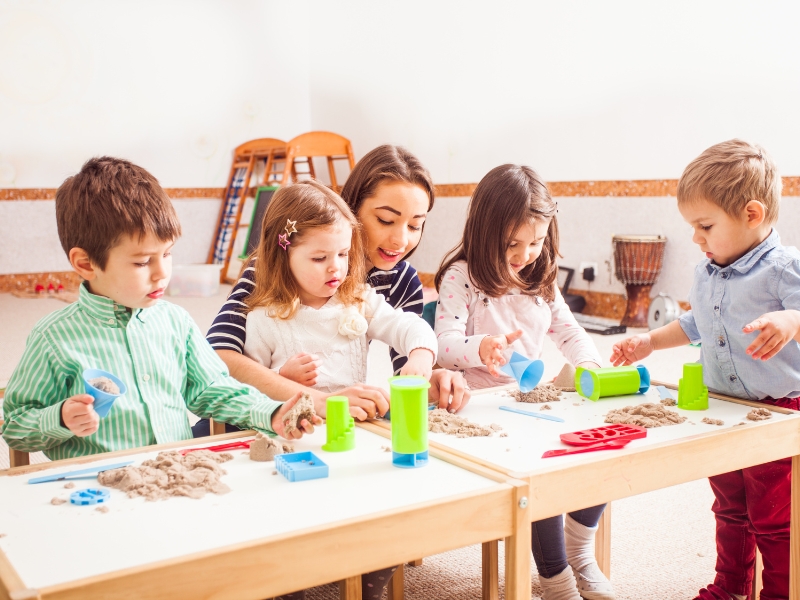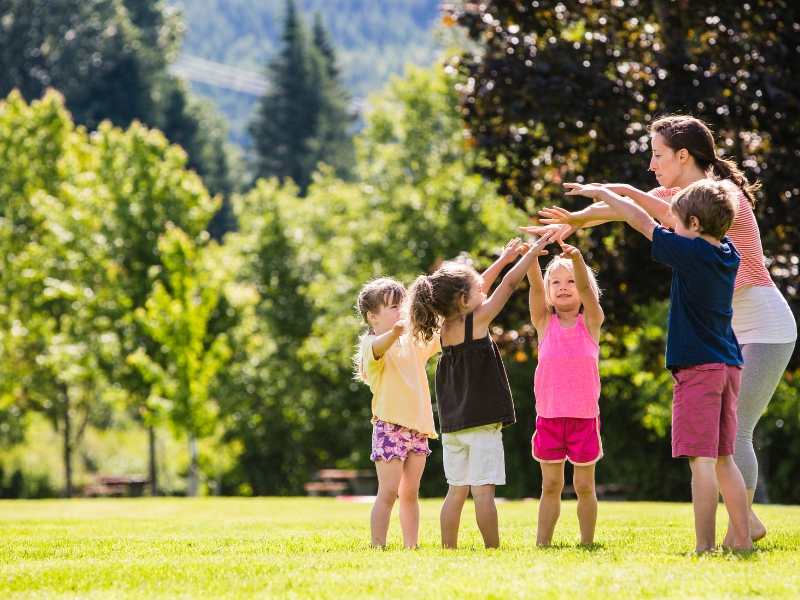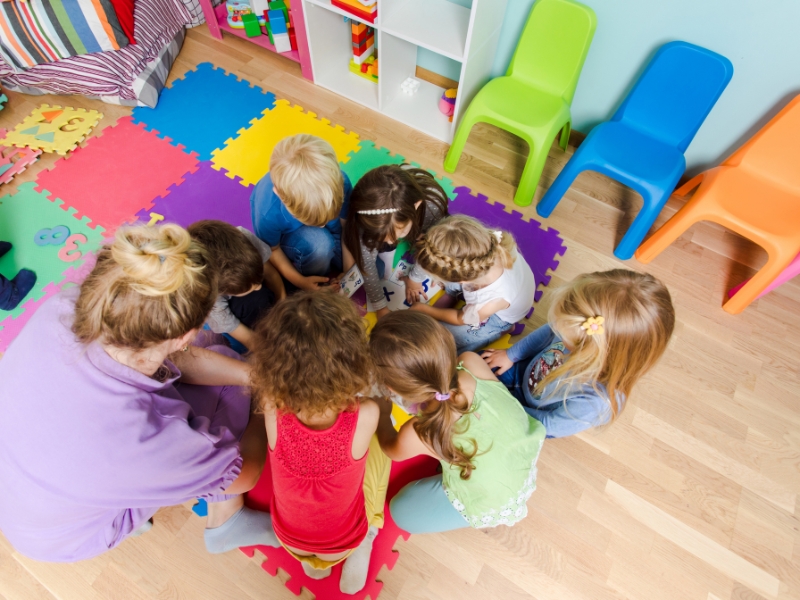How Does Daycare Impact A Child’s Social Skills
How Does Daycare Impact A Child’s Social Skills

Choosing the right daycare can be a big decision for parents, and one critical factor to consider is how it might impact their child’s social development. Daycare can provide a valuable opportunity for children to interact with peers and learn vital social skills. This article will explore how daycare can positively influence your child’s social skills.
How can daycare enhance your child’s social interactions?
Daycare offers a structured environment where children can interact with peers and caregivers, providing invaluable opportunities for social development. These interactions are crucial in helping children learn and practice essential social skills.
- Exposure to diverse personalities: Daycare environments bring together children from various backgrounds, exposing your child to a wide range of personalities, experiences, and perspectives. This exposure can foster empathy, tolerance, and understanding as children learn to appreciate and respect differences.
- Opportunities for cooperation and sharing: Many daycare activities involve group play and sharing resources, encouraging children to collaborate with others, share their belongings, and resolve conflicts peacefully. These experiences help children develop essential social skills like cooperation, generosity, and conflict resolution.
- Development of communication skills: Interacting with peers and caregivers in a daycare setting provides ample opportunities for children to develop essential communication skills. Children learn to listen attentively, express their needs and emotions clearly, and understand the perspectives of others. These communication skills are crucial for building strong relationships and navigating social situations.
What role do daycare activities play in developing your child’s social skills?
Daycare activities are more than just fun; they are carefully designed to support your child’s social and emotional development. Through various activities, children can learn essential social skills that will benefit them.
- Play-based learning: One of the most effective ways to foster social skills in young children is through play-based learning. Daycare often incorporates imaginative play activities that allow children to explore different roles, cooperate with others, and express themselves creatively. For example, children can learn to share, negotiate, and resolve conflicts peacefully during pretend play.
- Group activities: Activities such as arts and crafts, music, and storytelling provide opportunities for children to work together, share ideas, and develop a sense of community. These activities can help children learn to cooperate, listen to others, and express their thoughts and feelings.
- Structured activities: Activities like circle time or storytime can also play a crucial role in developing social skills. These activities help children learn to follow rules, take turns, and participate in group discussions. Children can become more confident and socially competent by practising these skills in a supportive daycare environment.
In addition to the activities mentioned above, daycare may incorporate other activities that benefit your child’s social development. For example, outdoor play activities can help children develop cooperation, teamwork, and problem-solving skills. Extracurricular activities, such as sports or drama, can provide opportunities for children to build self-esteem, confidence, and leadership skills.
By participating in various activities at daycare, your child can develop critical social skills that will help them succeed in school and life.
How does outdoor play at daycare contribute to your child’s social development?
Outdoor play is an essential component of a well-rounded daycare program. It offers unique opportunities for social learning and development.
- Physical activity: Outdoor play can promote physical activity, which has been shown to positively affect children’s social development. Physical activity can boost self-esteem, reduce stress, and improve mood, contributing to positive social interactions.
- Nature exploration: Exploring nature can help children develop a sense of wonder, curiosity, and empathy for the environment. These qualities can also contribute to positive social interactions.
- Opportunities for cooperation: Outdoor play often involves group activities, such as building forts or playing tag, which can encourage collaboration, teamwork, and problem-solving skills.

How can extracurricular activities at daycare improve your child’s social skills?
Extracurricular activities at daycare allow children to develop their social skills beyond the standard curriculum.
- New experiences: Extracurricular activities can expose children to new experiences and interests, which can help them develop confidence and self-esteem and, in turn, improve their social interactions.
- Leadership opportunities: Some extracurricular activities, such as sports or drama, may allow children to take on leadership roles. This can help them develop essential social skills, such as responsibility, teamwork, and communication.
- Shared interests: Extracurricular activities can bring together children who share common interests. This makes it easier for them to form friendships and bond with their peers.
What signs of daycare positively affect your child’s social skills?
Recognising how daycare boosts social skills can help you assess your child’s development and ensure they thrive in their environment.
- Increased confidence: If your child seems more confident and outgoing after attending daycare, it may be a sign that their social skills are improving.
- Positive interactions with peers: If your child can play well with others, share their toys, and resolve conflicts peacefully, their social skills develop.
- Improved communication skills: If your child can express their needs and emotions clearly and listen to others, it’s a sign that their communication skills are improving.

In addition to fostering social skills, daycare can also play a crucial role in promoting healthy child development by providing opportunities for cognitive growth and emotional development.
How do you choose the right daycare?
When choosing a daycare, consider the program’s quality, the staff’s qualifications, and the facility’s overall atmosphere. Look for a daycare that provides a nurturing and supportive environment where children can thrive and develop critical social skills.
Innocent Minds: A quality daycare option in Punchbowl and Yagoona
If you’re looking for a quality daycare in the Punchbowl or Yagoona area, consider Innocent Minds. Our daycare provides a safe, stimulating, and nurturing environment for children aged 0-6. We offer a variety of programs, including toddler and kindergarten programs, outdoor play activities, extracurricular activities, and a play-based learning curriculum. Social development is essential to early childhood education at Innocent Minds. We strive to create a positive and inclusive environment where children can learn and grow together. Contact Innocent Minds today to schedule a tour of our facility and learn more about how we can help your child develop critical social skills.
